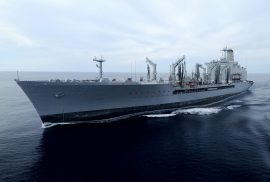Within Southeast Asia, regionalism is now a familiar concept. There are various regional bodies within Asia that have been formed, including the Association of Southeast Asian Nations (ASEAN), South East Asia Treaty Organization (SEATO), Association for Southeast Asia (ASA), MAPHILINDO, and Asian and Pacific Council (ASPAC). However, regionalism has not always been present within the region. In 1979, Wong argued that there were a number of barriers preventing the formation of a regional unity in Southeast Asia. These factors included a strong presence of nationalism amongst states, a lack of regional trust and identity, territorial conflict, and differences in political perceptions between countries. These obstacles prevented unification until ASEAN was finally established.
Politics and International Relations
Since the 1970s there have been hundreds of thousands of Rohingya Muslims fleeing from Myanmar, most of them using sea routes to reach neighboring countries such as Indonesia, Malaysia and Thailand. However, the large number of refugees also cannot be welcomed easily by the targeted countries, due to concerns over uncontrolled influx of refugees. Indonesia is one of the few countries that can communicate directly with Myanmar on the escalation of the conflict. Indonesian Foreign Minister Retno Marsudi said “Once again I conveyed Indonesia’s concerns to State Counselor Daw Aung San Suu Kyi regarding the situation in Rakhine state,” after being invited by Suu Kyi at her house for dinner while discussing openly the situation in Rakhine . [1] In addition to Indonesia, Malaysian Prime Minister Najib Razak led a demonstration on 4 December 2016 on what he described as”genocide” of the Rohingya Muslim minority in Myanmar. Najib Razak also invites neighboring countries and the international world to move forward in suppressing the violence. [2]
The South China Sea (SCS) is waters area extending from the Southwest to the Northeast, bordering on the south by 3 degrees south between Sumatra Island and Kalimantan Island (Karimata Strait) and the North is bounded by the Taiwan Strait from the north end to the directions of Fukein beach, China. The area of SCS itself is estimated to reach 4 million square kilometers with four sub large islands namely Paracel, Spratly, Pratas and Macclesfield (Asnani Usman and Rizal Sukma, 1997). SCS which is estimated to have great potential in marine biota, tourism, fishery, oil, natural gas and even navigation makes many countries try hard to get legality over SCS.
Southeast Asia is in the spotlight when by the end of 2015 the region officially enforces the ASEAN economic community which is one of the three pillars of the ASEAN Community. But for the international community, Southeast Asia is a region which its knowledge is rarely studied, so that a question arises about what is meant by Southeast Asia? Is Southeast Asia merely an area consisting of countries that are rich in culture, rice-eaters, electronic appliances lovers, and prioritizing family values?
One of the consequences of diversity in Southeast Asia is the emergence of many dynamic and never-ending questions to discuss. One question that keeps us thinking is, how does this region survive with hundreds of local beliefs and at the same time apply public policies regarding religious rules? Dr. Dicky Sofjan discussed the answers to this question in the SEA Talks # 8 discussion, on the afternoon of Thursday, June 16, 2016. In his presentation, Dr. Dicky explained that the logic of religion in society is often different from public policy. This can not be separated from the influence of the democratic system adopted by almost all countries in Southeast Asia. According to him, the application of democracy raises the existence of unintended consequences, as well as the phenomenon of abuse of laws, decentralization that causes inequality, and also multi-interpretation of the beliefs of one group. On the other hand, the state also has great authority through the prevailing system. Like Malaysia, which applies Islam as a national religion and is listed in the constitution. This rule then legitimizes the expulsion of Ahmadiyah worshipers in one of the mosques in Malaysia as well as rules that lead to minority discrimination.
Training was conducted by PSSAT, with a focus on the progress of Southeast Asia, and relevant future movements. Professor Muhtar Mas’ud spoke about rediscovering the meaning of the ASEAN Economic Community (AEC). According to Prof. Muhtar Mas’ud (MEA), that masyarakat is different from the komunitas. in English masyarakat is society; and komunitas is community. In the field of sociology, it is related to the meaning of the relationship of the two words. In society, relationships are built on the basis of needs and can change. While in the community, the relationship is more emotional. Relationships built on the basis of closeness such as familial relationships, relationships because of one clan, etc. In this connection, membership can not be changed and in and out. Mas’ud later said that Indonesia then considers the Economic ASEAN Community to be an ASEAN Economic Community (MEA) not as a Community of ASEAN Economic Community (KEA). If by community, this means that one member will not harm other members. This means there will be no suspicion. But in fact, the affairs of trust among countries in Southeast Asia is still very low between one and the other.
In the first and second week of September, the Standard Index of Air Pollution in Pekanbaru Riau stayed in the status of “very unhealthy” and “dangerous”. The Governor in act of Riau must announce the condition of Air Pollution Emergency. The post-decision of the status does not provide a significant meaning for the prevention of this smoke disaster. Until now, the thick haze still fluctuates in covering Pekanbaru and other cities in Sumatera Island and Kalimantan. Conversely, pressure on the Governor in act is stronger to evacuate 6.7 million citizens of Riau, even bringing back the desire for independence for a group of people who lost trust to the Central Government. Along with this haze calamity as well, the increasing demand for HTI and oil palm plantations getting higher, to be responsible, revoked its license and withdraw from Riau. Finally, only heavy rains which can calm down the anger of the people who become more flare up because of the haze.
ASEAN, Association of Southeast Asian Nations, is a geo-political and economic organization of countries located in Southeast Asia, which was formed on 8 August 1967, with signing the Bangkok Declaration by Indonesia, Malaysia, Philippines, Singapore and Thailand. As set out in the ASEAN Declaration, one of the aims and purpose of ASEAN is to accelerate the economic growth, social progress and cultural development in the region through joint endeavours in the spirit of equality and partnership in order to strengthen the foundation for a prosperous and peaceful community of Southeast Asian Nations.






